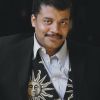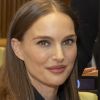8 Best-Selling Natural History Books Millions Love
Explore expert picks by Neil Degrasse Tyson, Jim Collins, and Helen Rosner that define best-selling Natural History books valued worldwide.





There's something special about books that both critics and crowds love, especially in Natural History, a field where curiosity about the living world never fades. These best-selling titles have captured imagination and insight for decades, revealing the wonders of nature through detailed observation, evolutionary tales, and cultural connections. Their popularity reflects how natural history remains a vital lens for understanding the environment and our place within it.
Astrophysicist Neil Degrasse Tyson champions Darwin’s The Origin of Species as foundational, while management consultant Jim Collins praises Stephen Jay Gould’s The Panda's Thumb for its wit and depth. Food writer Helen Rosner and actress Natalie Portman both highlight Gathering Moss for its blend of science and indigenous wisdom. These experts have helped bring these works to wider audiences, validating their lasting impact.
While these popular books provide proven frameworks, readers seeking content tailored to their specific Natural History needs might consider creating a personalized Natural History book that combines these validated approaches with your unique interests and goals.
Recommended by Neil Degrasse Tyson
Astrophysicist and science communicator
by Charles Darwin, Julian Huxley··You?
by Charles Darwin, Julian Huxley··You?
Charles Darwin’s extensive voyage on the H.M.S. Beagle sparked his deep fascination with the diversity of life, culminating in this book that reshaped scientific thought. In this edition, you explore how Darwin articulates the process of evolution by natural selection, detailing mechanisms like "survival of the fittest" that explain species adaptation over time. Sir Julian Huxley’s introduction frames the book’s enduring influence on biology, making it clear why professionals still find value in Darwin’s original arguments. If you’re curious about the foundations of evolutionary biology or how scientific ideas evolve through evidence, this book offers thorough insights with historical and scientific depth. It’s less suited for casual readers seeking quick summaries, but essential if you want to understand the roots of modern natural history.
Recommended by Helen Rosner
Food writer at The New Yorker
“@MoxietheMaven @gavinpurcell I love that book so much! I think all the time about her anecdote about the faceless rich person who hired her to consult on his designer ecosystem.” (from X)
by Robin Wall Kimmerer·You?
by Robin Wall Kimmerer·You?
Robin Wall Kimmerer, a botanist and writer of Native American heritage, draws from her scientific expertise and cultural background to explore the overlooked world of mosses. Through a series of personal essays, you learn how these simple plants interact with ecosystems and what they reveal about interconnected living. The book blends biology with indigenous wisdom, offering insights into both the science and spirit of moss life. You'll find chapters that examine mosses’ relationships with creatures like salmon and their role in nature’s cycles, making it a thoughtful read for anyone interested in the environment or cultural perspectives on nature.
by TailoredRead AI·
by TailoredRead AI·
This personalized book explores proven natural history methods tailored specifically to your unique challenges and interests. It combines widely valued knowledge with a focus that matches your background and personal goals, providing a deep dive into the study of plants, animals, ecosystems, and evolutionary processes that shape our natural world. By addressing your specific curiosities and learning objectives, this book fosters a richer understanding of natural history that resonates directly with your experience and aspirations. Through this tailored exploration, you engage with content that millions have found insightful, presented in a way that aligns perfectly with your individual path of discovery.
Recommended by Jim Collins
Management consultant and bestselling author
by Stephen Jay Gould·You?
by Stephen Jay Gould·You?
Stephen Jay Gould's sharp wit and deep curiosity drive "The Panda's Thumb," a collection that brings natural history to life through unexpected questions and reflections. You explore evolutionary quirks like the panda’s thumb and sea turtle migrations, uncovering how nature’s imperfections actually highlight broader evolutionary truths. Gould’s essays challenge assumptions, such as the intellectual comparisons between dinosaurs and lizards or the biases behind early genetic theories, offering you a nuanced understanding of biology's complexities. This book suits anyone fascinated by evolution’s oddities and those wanting to see science communicated with clarity and humor, rather than dry facts.
by Gilbert White·You?
by Gilbert White·You?
The breakthrough moment came when Gilbert White observed the intricate connections between local wildlife and the English countryside, transforming everyday natural phenomena into a vivid narrative. This book offers you an intimate glimpse into 18th-century ecology through detailed letters and observations that reveal animal behaviors, plant cycles, and seasonal changes with remarkable clarity. You'll learn to appreciate the subtle rhythms of nature and the importance of detailed field observation, skills that resonate with anyone curious about environmental science or natural history. Its charm lies in the way it invites you to slow down and notice the natural world around you, making it a rewarding read for historians, ecologists, and nature enthusiasts alike.
by Anna Botsford Comstock·You?
by Anna Botsford Comstock·You?
While working as an educator and naturalist, Anna Botsford Comstock noticed a gap in accessible, practical knowledge for teachers about local flora and fauna. This handbook offers detailed, yet approachable descriptions of common plants, animals, and natural phenomena, complemented by thoughtful questions and study units to deepen your understanding. You'll learn to observe nature closely, from dandelions and toads to constellations and soil, gaining skills to connect with your environment regardless of your prior expertise. This book especially benefits teachers, naturalists, and anyone eager to explore nature intimately in their own backyard or community.
by TailoredRead AI·
by TailoredRead AI·
This tailored book explores natural history through a focused, step-by-step approach designed for fast and practical learning. It covers essential concepts from ecology, species identification, and evolutionary principles, while integrating your individual interests to keep the journey engaging and relevant. By combining widely validated knowledge with your personal goals, the book reveals how natural systems interconnect and how to observe them effectively in the field. Tailored to your background and objectives, this book matches your pace and curiosity, offering a personalized pathway to understanding the living world. It emphasizes active learning and discovery, helping you develop core skills and insights that deepen your connection with nature.
by Douglas W. Tallamy, Rick Darke··You?
by Douglas W. Tallamy, Rick Darke··You?
Douglas W. Tallamy's extensive experience as a professor in entomology and wildlife ecology profoundly shapes this book, which explores the crucial role native plants play in sustaining local insect populations and the broader ecosystem. You learn how alien plants disrupt food chains by failing to support native insects, which then affects birds and other wildlife dependent on them. Tallamy offers practical insights into reversing habitat loss effects by planting native species, making this book particularly beneficial if you're a gardener, conservationist, or simply interested in supporting biodiversity in your backyard. The expanded resource section and updated photos in this edition enrich your understanding of how to create wildlife-friendly gardens.
by Donald Culross Peattie·You?
by Donald Culross Peattie·You?
Donald Culross Peattie's decades immersed in American natural landscapes shaped this absorbing account of North American trees. You learn not just botanical facts but also the intertwined history and cultural roles of these trees, such as the tuliptree’s use by Daniel Boone or the colonial conflicts over white pines. The narrative reveals both the utility and tragedy surrounding these species, like the decline of the American elm and passenger pigeon. This book suits those curious about ecological history and the deep connections between nature and human life in America, offering insights often missing from conventional textbooks.
by Pliny, H. Rackham·You?
by Pliny, H. Rackham·You?
Pliny the Elder, a Roman administrator and naval prefect, compiled a vast collection of knowledge in his Natural History, reflecting the breadth of ancient understanding about the natural world. This volume covers the universe's mathematical and metrological aspects alongside detailed geographic and ethnographic descriptions, giving you insight into how Romans perceived their environment and humanity. You’ll encounter sections ranging from the physiology of man to zoology and botany, providing a rich tapestry of facts and observations, even if some lack modern scientific rigor. This book suits those curious about historical perspectives on nature and the foundations of natural science, though it’s less for readers seeking contemporary scientific accuracy.
Popular Natural History Methods, Personalized ✨
Get expert-backed Natural History insights tailored specifically to your interests and goals.
Trusted by thousands of Natural History enthusiasts worldwide
Conclusion
These eight Natural History books collectively emphasize detailed observation, evolutionary theory, and the cultural context of nature, illustrating frameworks that readers trust and experts endorse. If you prefer proven methods, start with The Origin of Species for evolutionary foundations. For validated approaches blending science and culture, Gathering Moss and The Panda's Thumb offer enriching perspectives.
For those drawn to ecological study and practical knowledge, Handbook of Nature Study and Bringing Nature Home provide accessible insights. Alternatively, you can create a personalized Natural History book to combine proven methods with your unique needs.
These widely-adopted approaches have helped many readers succeed by deepening their connection to the natural world and inspiring ongoing exploration.
Frequently Asked Questions
I'm overwhelmed by choice – which book should I start with?
Start with The Origin of Species to grasp the evolutionary basis of natural history. It’s foundational and highly recommended by experts like Neil Degrasse Tyson.
Are these books too advanced for someone new to Natural History?
Not at all. Handbook of Nature Study is especially accessible for beginners, offering practical guidance, while others provide rich insights for all levels.
What’s the best order to read these books?
Begin with foundational works like The Origin of Species, then explore essays like The Panda's Thumb, followed by specialized topics such as Gathering Moss.
Do I really need to read all of these, or can I just pick one?
You can pick based on your interest. Each book stands alone, but together they offer a fuller picture of natural history’s scope.
Which books focus more on theory vs. practical application?
The Origin of Species and The Panda’s Thumb focus on theory, while Bringing Nature Home and Handbook of Nature Study provide practical, hands-on guidance.
Can personalized Natural History books complement these expert picks?
Yes! These expert books lay a solid foundation, and personalized books tailor insights to your interests and goals. Learn more about creating your own.
📚 Love this book list?
Help fellow book lovers discover great books, share this curated list with others!
Related Articles You May Like
Explore more curated book recommendations







